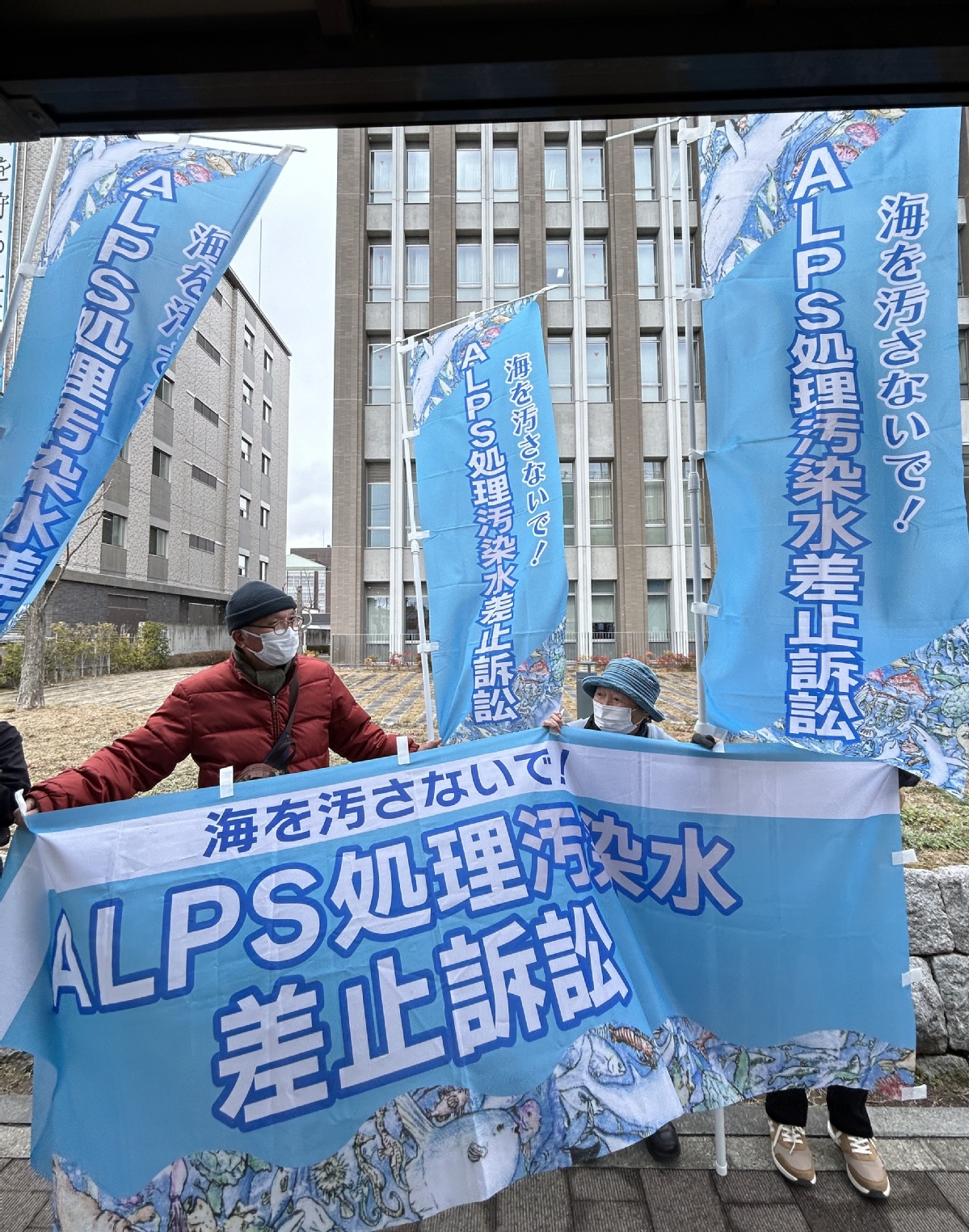Fukushima locals tell of damage as hearing to end ocean discharge demands justice


Fukushima Prefecture's industries remain impacted — agricultural output has recovered to 90 percent of pre-accident levels but forestry output is at 80 percent and coastal fishery landings remain about 20 percent.
Concerns about the long-term effects of continued ocean discharge have been raised, said Sugie Tanji, the plaintiff group's office director.
Although the government and mass media emphasize the "recovery of Fukushima", not even "restoration" has been achieved, Tanji said.
"There are no schools, medical facilities, supermarkets, or gas stations in the areas that residents can return to with peace of mind," she said.
"The future image of the prefecture cannot be envisioned. While decontamination, decommissioning, and related work at the nuclear power plant continue to increase, at least 80,000 people or more cannot return to their hometowns," she added.
"The damage from the Fukushima nuclear accident continues. This is not 'baseless rumor'. Many people who convey the spread of radioactive materials and the truth of the damage have been labeled as 'rumormongers', leaving many silent victims.
"It's a sad and painful reality, but we must face the facts as they are and seek genuine relief, restoration, and recovery. Otherwise, the victims will be abandoned, and division will only widen," Tanji said.
Chiyo Oda, a co-representative of the plaintiff group, has been living in Iwaki City on Fukushima's Pacific coast for over 40 years. It used to be common to see locals fish, swim, and play by the shore.
"However, after the nuclear accident, in order to avoid the effects of the radiation that poured down due to the accident, we had to adopt a lifestyle where everything, from the air to the water, from what we ate to what we touched, had to be inspected — a lifestyle unimaginable before the accident," Oda told judges in court.
Nevertheless, over the past 13 years, local residents tirelessly strived to return to normal. However, just when things were finally starting to settle down, the Pacific discharge decision was announced in 2021, before beginning last year.
"This ocean dumping, carried out intentionally by human hands, signifies the continued spread of radiation. It is truly unacceptable as it resurrects the fear and anxiety that the citizens experienced immediately after the nuclear accident. It nullifies countless efforts that people have desperately made, and this should not be allowed to happen," she said.
After the nuclear accident, Japanese citizens have engaged in activities to prevent further pollution of the sea. Oda became co-director of KOREUMI, a citizens' group formed primarily by Fukushima residents who experienced the disaster.
"Regarding this ocean dumping, there are many things that are incomprehensible and questionable to me, and I feel that promises were broken without adequate explanation," she said.
"Was it really necessary to dump what had been stored in tanks for so long into the sea? The treated contaminated water does not only contain tritium. How can they assert that it is 'safe' when they are releasing radioactive substances with known harmful effects?" Oda asked.
"It is said that it will take 30 years to complete the dumping but considering that there is no clear plan for handling melted debris, isn't it impossible for this ocean dumping to end within 30 years? … I believe that the country and TEPCO have an obligation to listen to our voices and provide clear answers."
Furthermore, on Oct 26 last year, TEPCO announced that an accident occurred where workers were exposed to nuclear-contaminated water while cleaning pipes at the Advanced Liquid Processing System at the Fukushima plant.
On Feb 7, TEPCO informed the International Atomic Energy Agency that water containing radioactive materials was found to have leaked from a cesium absorption tower at the plant.
"I cannot help but have serious doubts about the management capabilities of the government and TEPCO. Many citizens, including myself, fear that if ocean dumping continues, even worse accidents than this will occur," Oda said.
According to TEPCO, the reason for the ocean discharge is that the tanks storing contaminated water are full and there is no space to build new tanks, noted Hirota, the lawyer.
However, even from watching the television news, it is apparent that there is vacant land within the plant's premises, he said.
TEPCO has explained that the currently available vacant land is necessary for storing debris but as it stated that it will take over 30 years to remove the debris, the land will be vacant for 30 years, he added.
"Fukushima is our hometown, so our determination to oppose ocean pollution, such as contaminated water that could destroy our environment, remains unchanged. Although the government talks about not causing environmental pollution, we don't trust such words. We believe that the settlement of this trial will be decisive," he said.
























